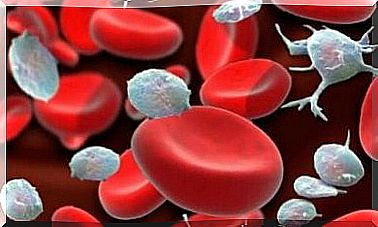Anxiety Indigestion

Anxiety is a very common problem among people of all ages. According to psychologists, it is basically one of the body’s natural coping mechanisms and a way for the body to communicate a potential impending danger. Both real threats and things that a person considers dangerous can trigger anxiety. Anxiety can be associated not only with a variety of thoughts and feelings, but also with physical symptoms such as sweating, tremors, and palpitations. Indigestion caused by anxiety is also not uncommon.
It is true that anxiety is a psychological ailment, but its symptoms affect different parts of the body in many different ways. Gastrointestinal problems are one of the most common physical symptoms caused by anxiety. It is estimated that approximately 260 million people worldwide suffer from prolonged anxiety. About a quarter of this have a variety of indigestion problems, such as nausea or a heavy feeling in the stomach.
That’s why in this article, we share information about the indigestion often associated with anxiety. Identifying these types of symptoms is important so that they can be controlled and treated to ensure a good quality of life.
The most common indigestion caused by anxiety

Anxiety affects every person in different ways, but in general, most symptoms are related to nervousness, tension, and restlessness. Butterflies in the stomach are usually associated with romantic connections, but it can also be one of the signs of anxiety.
Many indigestion is caused by anxiety and stress. For example, a person suffering from anxiety may experience nausea and heartburn. The symptoms are not necessarily limited to stomach problems, but can affect any part of the digestive system.
The most common indigestion caused by anxiety is:
- Dry mouth
- Nausea and vomiting
- Slowing of digestion and heartburn
- Changes in eating habits, such as binge eating or, conversely, loss of appetite
- Irritable bowel syndrome, manifested as pain felt in different parts of the stomach
- Constipation or diarrhea
The most serious of the indigestion caused by anxiety is usually changes in eating habits. At worst, loss of appetite can lead to malnutrition and uncontrolled eating for overweight, which predisposes to diabetes and cardiovascular disease, among others.
Control of indigestion caused by anxiety

The first thing to understand is that anxiety is a disease where anything else. There are still plenty of stigmas associated with mental health problems that are important to get rid of. Another important thing to remember is that there is nothing wrong with asking for help, on the contrary. If the anxiety is prolonged, very severe or paralyzing, making everyday life more difficult, it is important to see a doctor.
Anxiety can be treated in many different ways. The method of treatment is chosen on a case-by-case basis, but the most effective treatment is usually a combination of pharmacotherapy and therapy. Often, anxiety indigestion can also be alleviated by simple means. It is important to treat digestive problems as early as possible, as they can become chronic if prolonged.
Treatment for indigestion typically begins with a correction of diet and eating habits. For those with these types of problems, it is important to follow a healthy and balanced diet and maintain a steady meal rhythm. Instead of heavy, high-fat and highly processed foods, you should choose light and healthy options.
Summary
In addition to psychologically affecting people, anxiety is often accompanied by numerous physical symptoms. Some of them are indigestion such as heartburn, nausea, and changes in appetite. Anxiety can also manifest itself as a change in behavior and, for example, binge eating. Anxiety is a common ailment that each of us suffers to some extent during our lives. Short-term and temporary anxiety is normal, but long-term or severe anxiety is crippling, and it is important to seek help for it.









